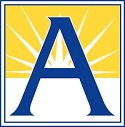 Arlington public school teachers will have restrictions put on their use of Facebook and Twitter. The Arlington School Board adopted a new policy at its meeting on Tuesday, June 19, setting guidelines for social media use between students and teachers.
Arlington public school teachers will have restrictions put on their use of Facebook and Twitter. The Arlington School Board adopted a new policy at its meeting on Tuesday, June 19, setting guidelines for social media use between students and teachers.
The School Board said it recognizes the importance of social media as means for parents, students and teachers to collaborate through evolving forms of communication. However, board members noted the need for clear and reasonable boundaries for interactions between students and adults.
The policy is designed to protect students from misconduct and abuse, and to protect adults from misunderstandings and false accusations. In addition to preventing inappropriate sexual contact from occurring between students and teachers, the policy is also intended to curb harassment and bullying.
Arlington Public Schools will allow students and employees to interact via social media while in online groups, but all content must relate to classroom instruction or school-sponsored extracurricular activities. Adults will not be permitted to engage in one-on-one electronic communication with students, with an added caveat for instances of an emergency.
“One-on-one emergency contact is permissible, provided that the employee would then contact their supervisor, so that the parent could be notified as soon as possible about the reason for the exception being made, or the emergency,” said Assistant Superintendent Linda Erdos.
APS has defined social media as any online media that allows users to collaborate and engage in multi-directional conversations, to create personal profiles and to view the personal profiles of other users. This may include APS-approved media tools such as BlackBoard or Google. Twitter, Facebook, blogs, online forums and other social media tools generally available to the public are also included in the definition.
The policy is designed to provide guidelines for transparency, privacy protection and responsible use of social media. Some of those guidelines are as follows:
- Information about the use of any social media should be included in the classroom syllabus or extracurricular information, and department supervisors and school administration should be aware of what social media tools are being used. The classroom syllabus should include a clear statement of the purpose and outcomes for the use of any networking tool.
- Teachers/staff must ensure that the social media tools they are using have been submitted to the school administration for approval each school year. This may be an ongoing process throughout the school year, to be reevaluated annually.
- Employees should establish clear rules and expectations and a code of conduct for all network participants. Just as in the classroom setting, online rules should be established to foster an atmosphere of respect, trust, and clear professional boundaries.
- Parents should be informed of the social media tools being used, how their children are being contacted online, and the expectations for appropriate behavior.
- Employees should be aware that they will be identified as working for and representing the school in what they do and say online.
- Communications with students should be professional and appropriate within the context of the teacher/student relationship.
- Employees should not discuss students or coworkers publicly.
- Teachers should treat social media as an extension of the classroom, and should weigh every posting for how it affects their effectiveness as teachers.
- Employees may not use commentary deemed to be defamatory, obscene, proprietary, or libelous. Caution must be exercised with regards to exaggeration, inappropriate language, legal conclusions, and derogatory remarks or characterizations.
- All laws pertaining to copyright and intellectual property must be obeyed.
- Remember that all online communications are stored and can be monitored.
- Inappropriate communications with students in any electronic or other format may be grounds for termination and loss of the educator’s license.
- Teachers/employees have the obligation to keep all student information private.
- Users must pay close attention to the site’s security settings and allow only approved participants access to the site.
APS said it will regularly monitor social media used by schools and departments. Staff found not adhering to the new policy will be subject to disciplinary actions. Before Tuesday, there was no formal social media policy in place at APS.

